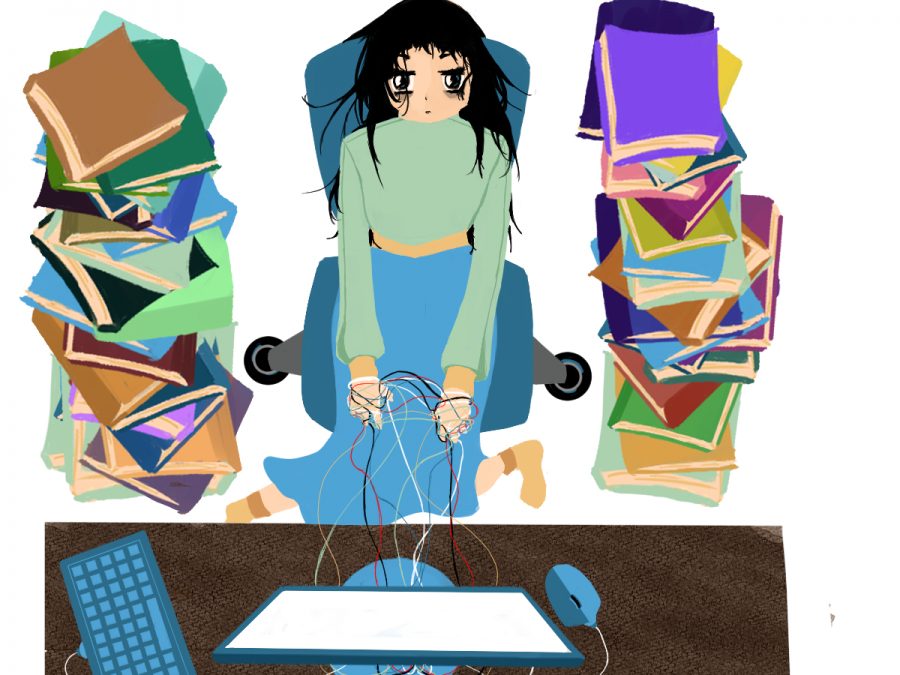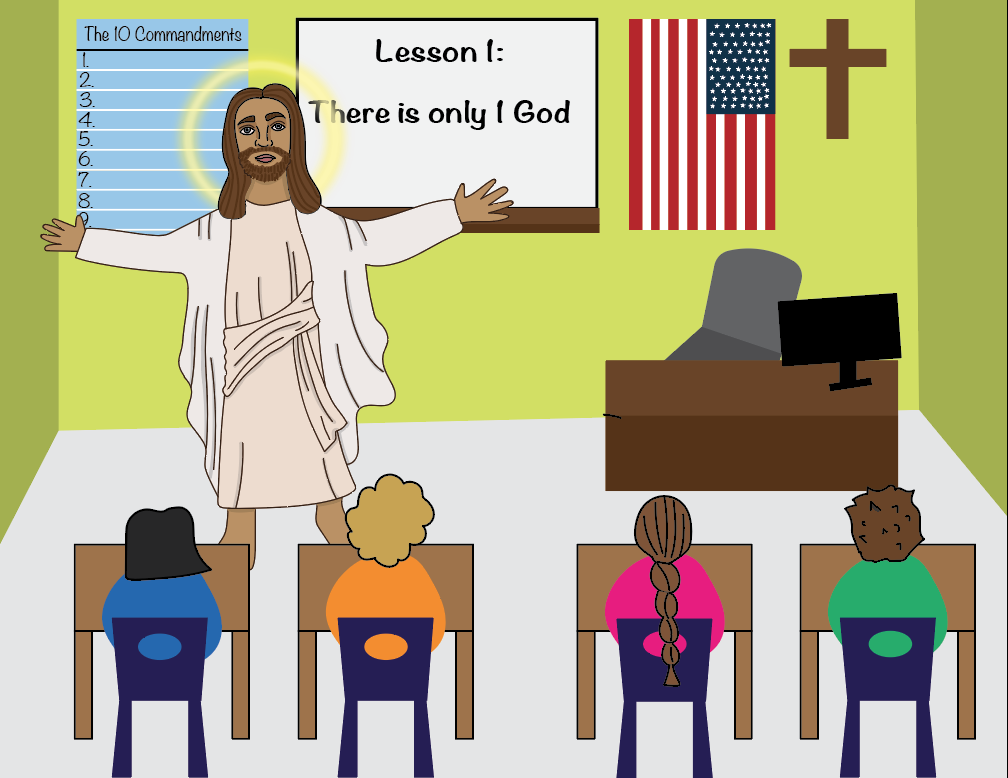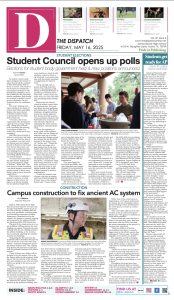Online learning increases student fatigue and burnout
May 11, 2021
Since COVID-19 began, teenagers have shown a 46% increase in depressive states and symptoms, according to Michigan Medicine. Social isolation, a lack of productive emotional and physical outlets, limited engagement with school, and confined quarantining are all sources of distress for students.
The concerns over rampant depression coincide with a rise in anxiety, loneliness, and incomplete socialization skills. Most students aren’t going out to meet friends, are canceling important social events and activities like sports or theatre, and are struggling to adapt to Online school.
This student fatigue is more than the amount of schoolwork students have. The unique circumstances of quarantine have only intensified student pressures while providing few activities to relieve stress. Teachers are attempting to limit the curriculum to accommodate student needs. However, the emotional weight that comes with isolation and self-paced classes are where fatigue can disrupt students’ academic performance.
Without the disciplined schedule of extracurriculars, students don’t have the space to express their self-interests or refine their social skills. These activities have been adapted as best they can be, but can’t mimic the environment that fostered passion from students.
Even more comes the stress of disciplined self-independent work. Students may not be capable of self-paced, independent learning. Freshmen leaving middle school can feel mounting anxiety over their own futures. Especially with the immediate concerns over GPA and a different scheduling system that fosters more complex classes; these changes only exacerbate the transition difficulties. But Online learning has forced young students to conform to a completely new learning format that puts their delegation and scheduling skills to the test.
Sophomores and juniors have especially intensive workloads which can dictate the path of their careers. The additional barriers between studying and test environments completely halts necessary engagement that is conducive to academic success.
With seniors, there’s already the chance of senioritis, but the onset of Online learning only intensifies the lack of motivation to perform well. Many students believe senior year is centered around friendships and relationships that may end come springtime. There’s already a lot of stress associated with becoming an adult and taking on new responsibility for higher education, career, or plans for the future.
Additionally, distance learning creates a unique lack of accountability for students. Without the threats of confrontation from teachers or other students, the drive to complete work can be diminished.
While the self-paced environment may be compared to a college or university system, there are many key differences that go unaccounted for. The lack of authority figures and peer interaction is antithetical to a normal college campus, where the surrounding areas cater to students and the proximity to campus encourages engagement and participation.
All of these factors have led to an emotional burden on students that is worsened by a lack of healthy outlets. Without friends to vent to in-person, and with only family members who may not understand the toll of schooling during quarantine, the only real connection to the outside world is the Internet.
Luckily, there are solutions to the problem of boredom. Whether it be starting small businesses, learning new hobbies, investing time into books, and even binge-watching shows, they’re all great ways to occupy time. The flexible school schedule creates more opportunities to clean out the closet, sell old possessions, and replace clutter.
There’s also a chance for more meditative methods of self-reflection and exploration, without the influence of peers or a constantly busy schedule. Finding a balance during the unique circumstances of quarantine isn’t easy, but there’s breathing room to discover oneself outside of the constraints students face in a formal school environment.









